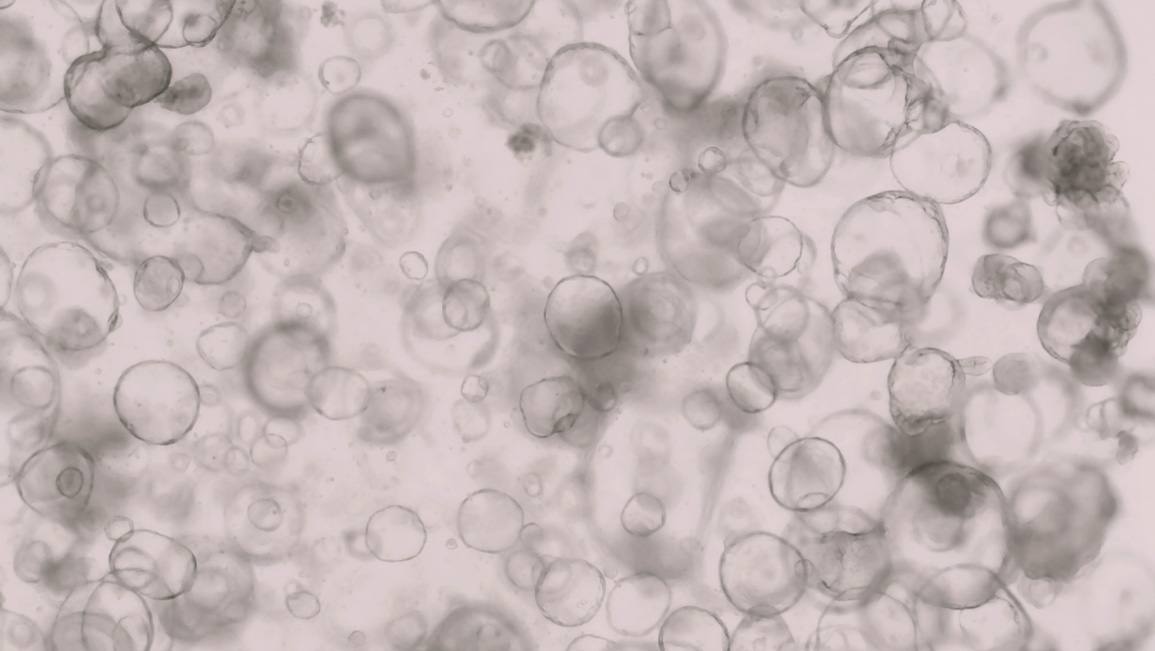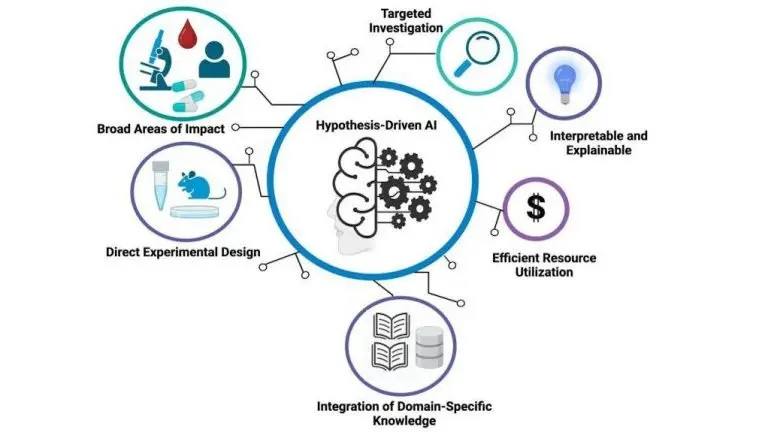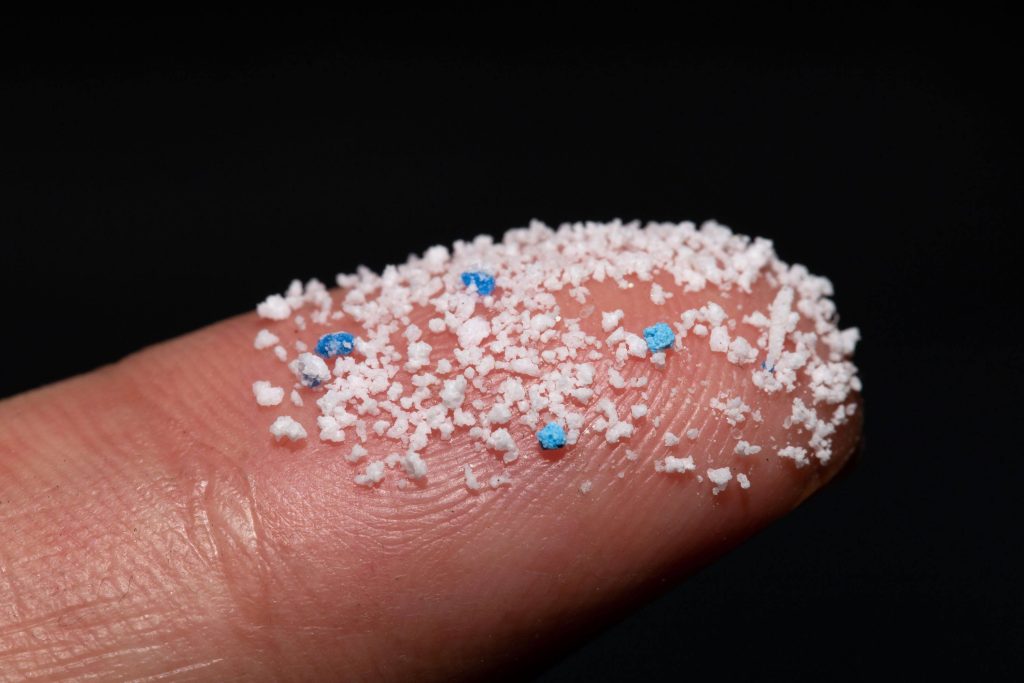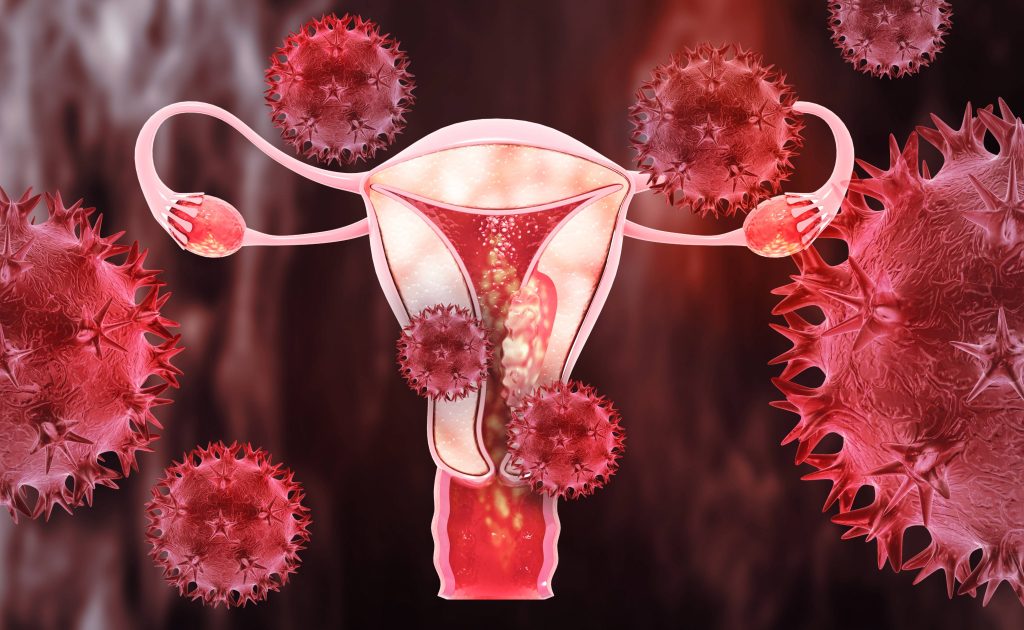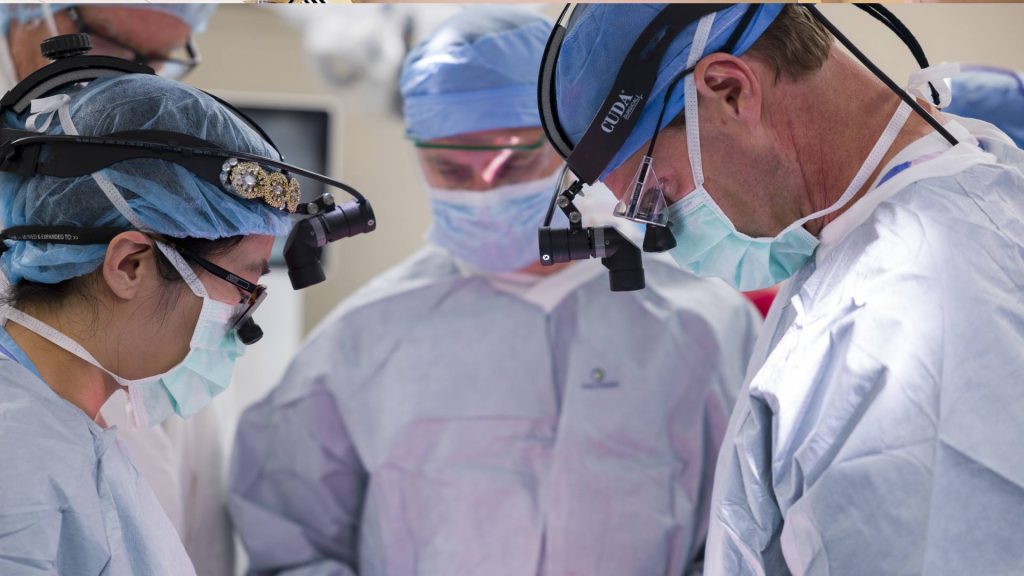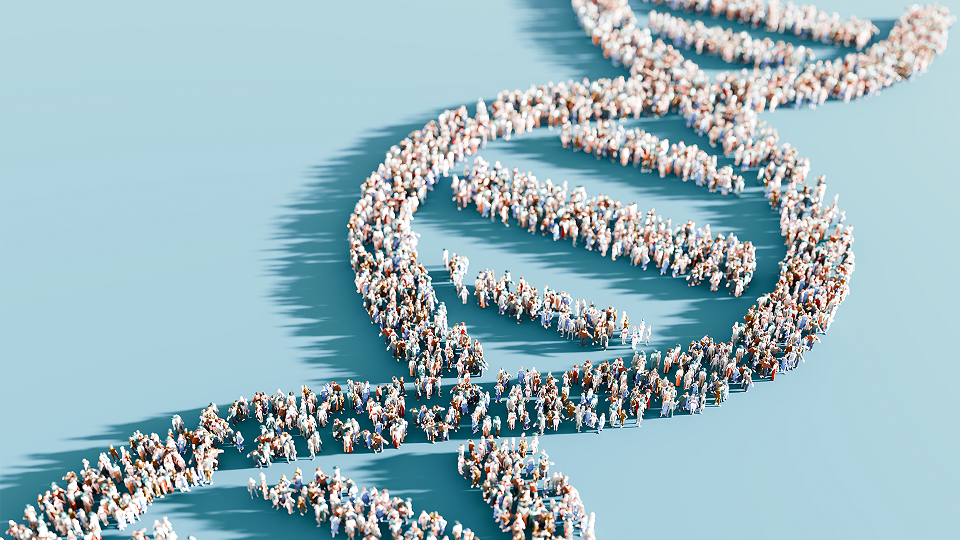-
 Research
Research10 Mayo Clinic research advances in 2024, spanning stem cell therapy in space to growing mini-organs
ROCHESTER, Minn. — At Mayo Clinic, researchers published more than 10,000 scientific papers in 2024 that are driving medical discoveries, leading to new cures for the future. The following are 10 research highlights from Mayo Clinic this year:
Growing mini-organs to find new treatments for complex disease
Mayo Clinic investigators are growing three-dimensional human intestines in a dish to track disease and find new cures for complex conditions such as inflammatory bowel disease. These mini-organs function like human intestines, with the ability to process metabolites that convert food into energy on a cellular level and secrete mucus that protects against bacteria. These 3D mini-intestines in a dish, known as "organoids," provide a unique platform for studying the intricacies of the human gut.
"We think this has the potential to revolutionize the way we approach disease research. We hope to save time and resources and avoid the development of therapies that fail upon translation into patients," says Charles Howe, Ph.D., who leads the Translational Neuroimmunology Lab. "Understanding which treatments show potential for success in human organoids could dramatically accelerate the rate of new therapies for patients with unmet needs."
Brain stimulation shows promise in treating drug addiction
Physicians use neurostimulation to treat a variety of human disorders, including Parkinson's disease, tremor, obsessive-compulsive disorder and Tourette syndrome. A Mayo Clinic neurosurgeon and his colleagues believe one form of that treatment, called deep brain stimulation (DBS), is poised to solve one of the most significant public health challenges: drug addiction.
"Drug addiction is a huge, unmet medical need," says Kendall Lee, M.D., Ph.D., who has published nearly 100 journal articles on DBS along with his colleagues. Key to treating it, he says, is cutting off the pleasurable "high" that comes with the addiction — which DBS potentially can do.
A new class of AI aims to improve cancer research and treatments
Mayo Clinic researchers have invented a new class of artificial intelligence (AI) algorithms called hypothesis-driven AI, which is a significant departure from traditional AI models that learn solely from data. The researchers note that this emerging class of AI offers an innovative way to use massive datasets to help discover the complex causes of diseases, such as cancer, and improve treatment strategies.
"This fosters a new era in designing targeted and informed AI algorithms to solve scientific questions, better understand diseases and guide individualized medicine," says co-inventor Hu Li, Ph.D., a Mayo Clinic systems biology and AI researcher. "It has the potential to uncover insights missed by conventional AI."
What's lurking in your body? Mayo probes health risks of tiny plastic particles
Similar to natural elements like iron and copper, people can ingest, absorb, or even inhale microplastics and nanoplastics and their chemical additives. A landmark study published in the New England Journal of Medicine links microplastics and nanoplastics found in plaques of human blood vessels to a potential increased risk of heart attack, stroke or death.
"Plastics have made our lives more convenient and spurred many medical advances, but we must understand their impact on human health for the years to come," says Konstantinos Lazaridis, M.D., the Carlson and Nelson Endowed Executive Director for Mayo Clinic's Center for Individualized Medicine.
Mayo Clinic researchers' new tool links Alzheimer's disease types to rate of cognitive decline
Mayo Clinic researchers have discovered a series of brain changes characterized by unique clinical features and immune cell behaviors using a new corticolimbic index tool for Alzheimer's disease, a leading cause of dementia. The tool categorizes Alzheimer's disease cases into three subtypes according to the location of brain changes and continues the team's prior work, demonstrating how these changes affect people differently. Uncovering the microscopic pathology of the disease can help researchers pinpoint biomarkers that may affect future treatments and patient care.
"Our team found striking demographic and clinical differences among sex, age at symptomatic onset and rate of cognitive decline," says Melissa Murray, Ph.D., a translational neuropathologist at Mayo Clinic.
Mayo scientists explore swabs for early endometrial, ovarian cancer detection
Early detection improves treatment outcomes for endometrial and ovarian cancers, yet far too often, women are diagnosed when in advanced stages of these diseases. Unlike many other cancers, there are no standard screenings for early detection of endometrial and ovarian cancers. Mayo Clinic researchers have uncovered specific microbial signatures linked to endometrial and ovarian cancers, and they are working toward developing innovative home swab tests for women to assess their susceptibility.
"This research not only brings us closer to understanding the microbial dynamics in cancer, but also holds the potential to transform early detection and treatment strategies to positively impact women's health globally," says Marina Walther-Antonio, Ph.D., an assistant professor of surgery leading this research.
Reversing racism's toll on heart health
People who experience chronic exposure to racism may be affected by factors such as intergenerational trauma, reduced access to healthcare, differential treatment in healthcare settings and psychological distress. These negatively affect heart health and can have a cumulative effect throughout a person's life. Researchers from Mayo Clinic and the University of Minnesota published a paper which provides a new framework describing how racism affects heart health among people of color in Minnesota. The researchers are focused on reversing these disparities.
"This framework will help scientists explore and measure how chronic exposure to racism, not race, influences health outcomes," says Sean Phelan, Ph.D., a Mayo Clinic health services researcher. "This will help enable researchers to design interventions that address the root causes of these disparities and improve heart health for people of color everywhere."
Teamwork and research play a key role in Mayo Clinic's first larynx transplant
A team of six surgeons and 20 support staff combined expertise from the Department of Otolaryngology and the Department of Transplantation in an extraordinary 21-hour operation at Mayo Clinic. The team transplanted a donor larynx to a 59-year-old patient with cancer whose damaged larynx hampered his ability to talk, swallow and breathe. This groundbreaking surgery was only the third larynx transplant in the U.S., and the world's first known successful total larynx transplant performed in a patient with an active cancer as part of a clinical trial.
"All transplants are complex, but there are more tissue types and moving parts with laryngeal transplantation than other transplants," says David Lott, M.D., lead surgeon. "Mayo Clinic's team science approach made it possible for us to offer this type of transplant on a scale that was previously unattainable."
Space: A new frontier for exploring stem cell therapy
Two Mayo Clinic researchers say that stem cells grown in microgravity aboard the International Space Station have unique qualities that could one day help accelerate new biotherapies and heal complex disease. The research analysis by Abba Zubair, M.D., Ph.D., a laboratory medicine expert and medical director for the Center for Regenerative Biotherapeutics at Mayo Clinic in Florida, and Fay Abdul Ghani, Mayo Clinic research technologist, finds microgravity can strengthen the regenerative potential of cells.
"Studying stem cells in space has uncovered cell mechanisms that would otherwise be undetected or unknown within the presence of normal gravity," says Dr. Zubair. "That discovery indicates a broader scientific value to this research, including potential clinical applications."
Mayo Clinic’s largest-ever exome study offers blueprint for biomedical breakthroughs
Mayo Clinic's Center for Individualized Medicine has achieved a significant milestone with its Tapestry study. It generated Mayo's largest-ever collection of exome data, which includes genes that code for proteins—key to understanding health and disease.
Researchers analyzed DNA from over 100,000 participants of diverse backgrounds, providing important insights into certain genetic predispositions to support personalized and proactive medical guidance. "The implications of the Tapestry study are monumental," says Konstantinos Lazaridis, M.D., the Carlson and Nelson Endowed Executive Director for the Center for Individualized Medicine. "As this study continues to inform and transform the practice of personalized medicine, it also sets a new standard for how large-scale medical research can be conducted in an increasingly digital and decentralized world."
###
About Mayo Clinic
Mayo Clinic is a nonprofit organization committed to innovation in clinical practice, education and research, and providing compassion, expertise and answers to everyone who needs healing. Visit the Mayo Clinic News Network for additional Mayo Clinic news.
Media contact:
- Colette Gallagher, Mayo Clinic Communications, newsbureau@mayo.edu





